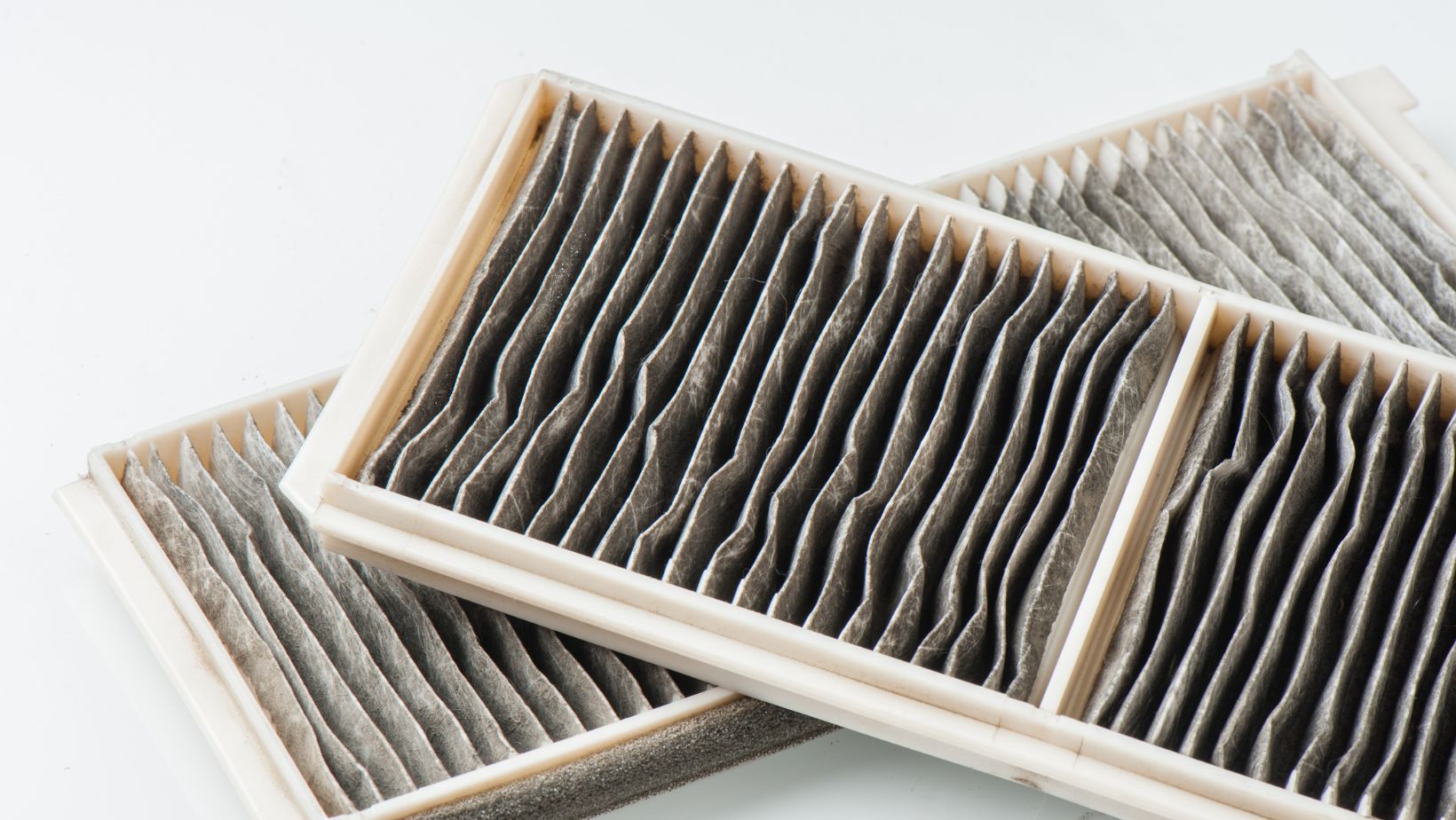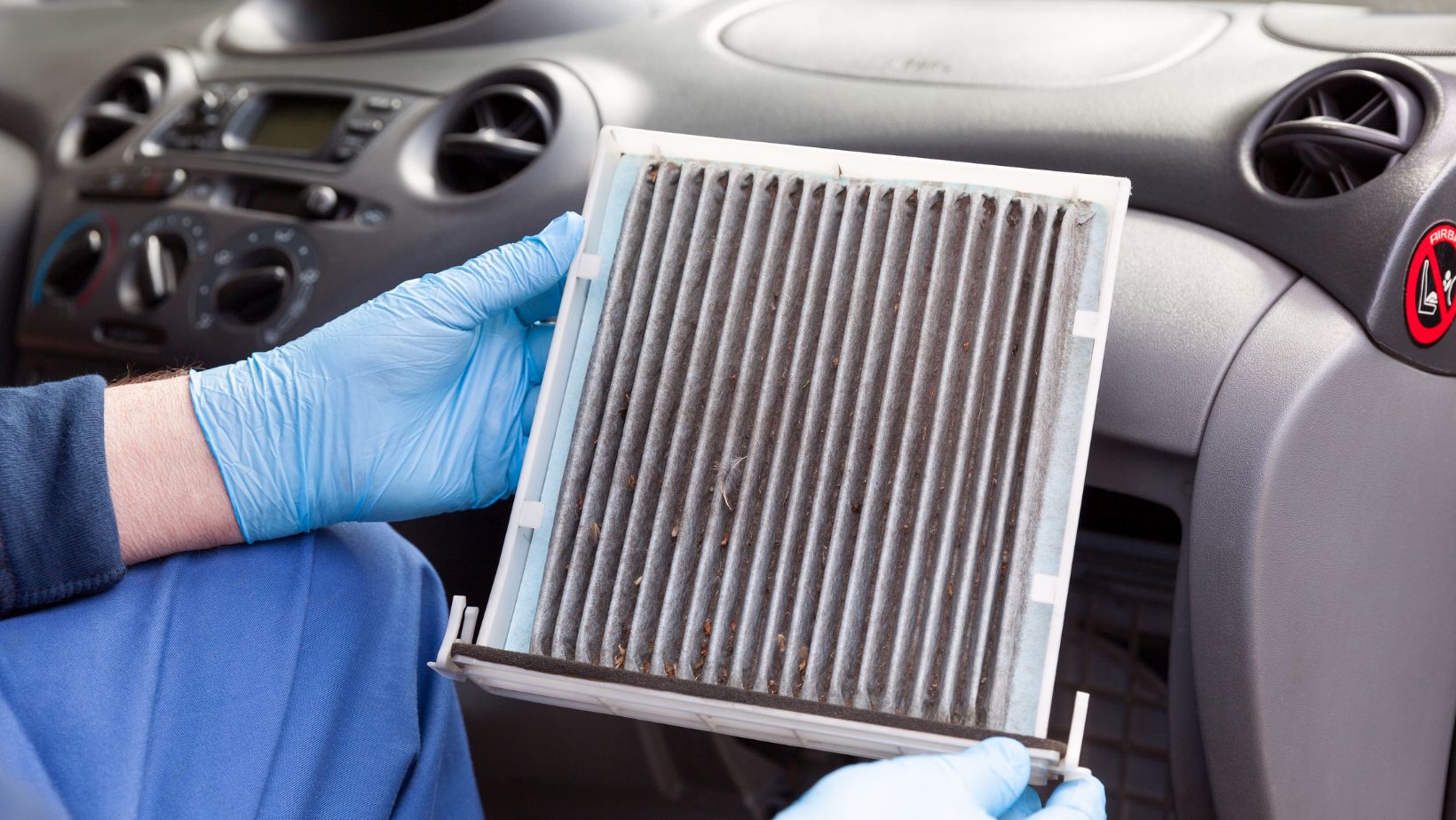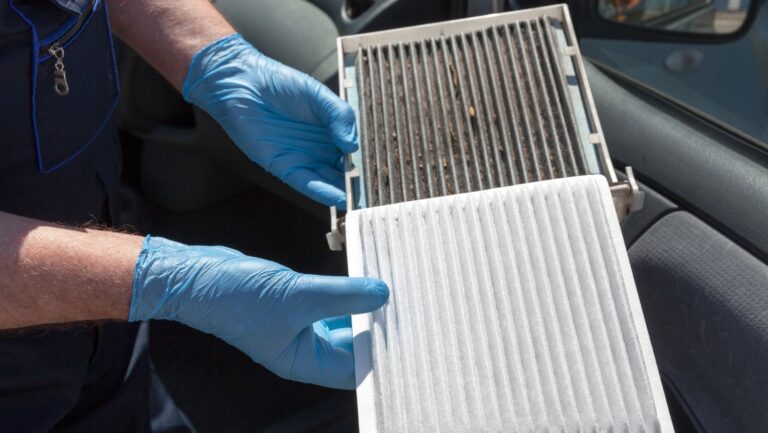A cabin air filter is a crucial component in maintaining the air quality inside your vehicle. It helps to trap dust, pollen, and other pollutants from entering the cabin, ensuring a cleaner and more comfortable driving experience. But in time, the filter may clog and lose some of its effectiveness.
Recognizing the symptoms of a clogged cabin air filter is essential for timely maintenance and ensuring that your vehicle’s HVAC system functions properly. This article explores the common signs that indicate a clogged cabin air filter and why addressing this issue is important for your vehicle’s performance and health.
1. Reduced Airflow from the Vents
Description: One of the most noticeable symptoms of clogged cabin air filters is a significant reduction in airflow from the air vents. When the filter becomes obstructed with debris and dirt, it restricts the amount of air that can pass through.
Impact: Reduced airflow can lead to inadequate ventilation and a less effective HVAC system. This can cause discomfort for passengers, especially during extreme temperatures.
What to Do: If you notice that the air coming from the vents is weak or less forceful than usual, it’s a good idea to check the cabin air filter. Replacing or cleaning the filter can restore normal airflow and improve the performance of your HVAC system.
2. Unpleasant Odors in the Cabin
Description: A clogged cabin air filter can cause unpleasant odors to develop inside the vehicle. As the filter becomes dirty, it can trap moisture and create an environment where mold and mildew can grow.
Impact: These odors can be musty or damp and can affect the overall comfort and enjoyment of driving. In some cases, the smell can be so strong that it is noticeable as soon as you start the vehicle.
What to Do: If you detect unusual smells in the cabin, it’s worth inspecting the cabin air filter. Replacing a dirty filter can help eliminate these odors and improve the overall air quality inside your vehicle.
3. Increased Windshield Fogging
Description: A clogged cabin air filter can contribute to increased condensation on the windshield and other windows. When the filter is obstructed, it can affect the efficiency of the defroster and heater, leading to excess moisture inside the cabin.

Impact: This fogging can reduce visibility and pose a safety risk while driving. It can also lead to a more challenging driving experience, particularly in humid or cold conditions.
What to Do: If you experience frequent fogging on your windows, especially when using the defroster, check the condition of your cabin air filter. Replacing a clogged filter can improve defogging performance and help maintain clear visibility.
4. Allergies or Respiratory Issues
Description: A clogged cabin air filter may lead to poor air quality inside the vehicle, which can exacerbate allergies or respiratory issues. The filter’s primary function is to trap allergens, dust, and pollutants, but a clogged filter can fail to perform this function effectively.
Impact: Passengers with allergies or asthma may experience worsened symptoms, such as sneezing, coughing, or difficulty breathing. Poor air quality inside the vehicle can negatively affect the health and comfort of all occupants.
What to Do: If you or your passengers notice an increase in allergy symptoms or respiratory discomfort, consider checking the cabin air filter. Replacing it can help restore cleaner air and alleviate related health issues.
5. Strange Noises from the HVAC System
Description: A clogged cabin air filter can cause unusual noises from the HVAC system. As the filter becomes blocked, it can cause the blower motor to work harder, leading to noises such as rattling, whistling, or vibrating sounds.
Impact: These noises can be annoying and may indicate that the HVAC system is under stress. In some cases, prolonged use with a clogged filter can lead to additional wear and tear on the system.
What to Do: If you hear strange noises when using the HVAC system, it’s advisable to inspect the cabin air filter. Replacing a clogged filter can reduce strain on the system and eliminate unusual sounds.
6. Decreased HVAC Performance
Description: A clogged cabin air filter can lead to overall decreased performance of the HVAC system. This includes problems with heating and cooling efficiency, as the filter’s obstruction limits airflow and reduces the system’s ability to regulate temperature effectively.
Impact: Poor HVAC performance can result in an uncomfortable driving environment, especially during extreme weather conditions. It can also lead to increased wear on the system components.
What to Do: If you notice that the heating or cooling functions of your HVAC system are less effective than usual, check the cabin air filter. Replacing a clogged filter can help restore optimal performance and comfort.
7. Engine Performance Issues
Description: While less direct, a clogged cabin air filter can indirectly affect engine performance. The HVAC system’s blower motor may draw additional power if the filter is clogged, which can put extra strain on the vehicle’s electrical system.

Impact: This can potentially lead to diminished engine performance or reduced fuel efficiency over time, although the primary impact is usually felt in the HVAC system rather than the engine itself.
What to Do: If you suspect that your vehicle’s engine performance is affected, it’s worth checking all related components, including the cabin air filter. Addressing any issues with the HVAC system can help ensure that the vehicle operates smoothly.
Maintain Cabin Air Filter for Optimal Vehicle Comfort and Safety
A clogged cabin air filter can have several negative effects on your vehicle’s HVAC system and your overall driving experience. Symptoms such as reduced airflow, unpleasant odors, increased windshield fogging, and respiratory issues can signal that it’s time to inspect and replace the filter.
Regular maintenance, including checking and replacing the cabin air filter, is essential for maintaining good air quality, ensuring optimal HVAC performance, and enhancing the comfort and safety of your vehicle. By staying attentive to these symptoms and addressing issues promptly, you can ensure a more pleasant and healthier driving environment for yourself and your passengers.




